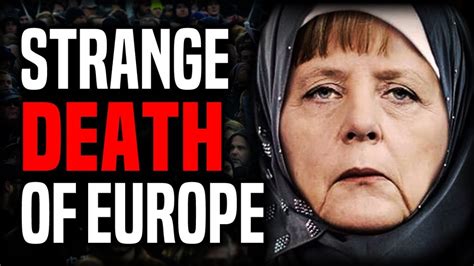I love Jay Nordinger’s “Impromtus” at National Review Online. In brief, they amount to a series of observations about wherever Nordinger happens to be at a given time. The latest on November 13th was about his visit to Stockholm, with pithy comments about a variety of things ranging from the landscape and light at Sweden’s November sunset (breathtaking photo included!) to a new opera based on Dracula. Delightful stuff.
But there was one sour note—not unintentional either. Here it is:
A few years ago, I did a little report from Maine — where there is a Somalian population. Problems abound. I wondered, Are they grateful? Are these Somalian Mainers grateful to be in America, as contrasted with their tormented native land? They won a kind of lottery [ . . . ] Here in Sweden, I think, Are they grateful? The people who have come from the Middle East and North Africa and South Asia? Do they realize how lucky they are, to be living in this free and generous country? Or are they resentful? Do they feel shame at the contrast between Sweden and the countries they left? Or do they feel entitled, even superior? Are they willing to assimilate?
I had a similar experience second-hand when I watched a number of Somalis in the upper Midwest interviewed a year or so back. During the course of the exchange they were asked whether they would prefer living under our Constitution or Sharia. Everyone gave the same answer, as you may have guessed: Sharia. I don’t know whether that qualifies as a blanket answer to Nordlinger’s questions, but I suspect it does.
In The Strange Death of Europe, Douglas Murray sounds an extended note at least as sour on the immigration crisis in the United Kingdom and the Continent. To say that the book restricts itself to the current mess would be misleading; Murray delves into the present controversy, sure enough, but he does much more, devoting the first two chapters to the history of immigration in Europe from the post-war labor shortage to very recent policy decisions.
Americans must stretch their imaginations considerably to grasp how desperate Europeans felt after the war. The loss of soldiers we understood, but the destruction of industries and cities (see this fascinating YouTube video of Berlin in 1945, for example.
The horrifying civilian death toll were beyond anything in our experience. A Marshall Plan could do much, but nothing short of a generation or two of unprecedented baby-booming could replace the men and women who died on the battlefield and in the incinerated cities—people who in the years in-between the wars worked in factories and farmed the land.
It’s a well-known fact that the birthrate did not rise to meet Europe’s dire need. To address the crisis, politicians decided immigration was the surest means of supplying what they were sure European marriages would not. Soon men and women of different complexions, speaking different language, and espousing strange customs and faiths began arriving in France, West Germany, Italy, Great Britain, and Scandinavia. It was not long, as Murray points out, before a strain on British institutions—hospitals and schools notably—began to show, and not long either before some, Enoch Powell famously in the “Rivers of Blood” speech, began to raise the alarm of allowing 50,000 immigrants per year into the country.
The speech, which in light of today’s figures, seems quaint, created such a backlash that discussion of such policies as deportation and the outlawing of “marriages of convenience” disappeared from parliament. Around the 80s large was the immigrant population and so vocal the Left’s refusal to permit an airing of concerns about assimilation that when headmaster Ray Honeyford published an article expressing his belief that Pakistanis in his school should learn English and adopt British customs, the mayor of Bradford (a Muslim) launched a campaign for Honeyford’s “retirement”—and succeeded. That was in 1984.
Thirty years later on New Year’s Eve, Angela Merkel told the German people to reject “prejudice, coldness, or hatred” and accept “people who seek refuge with us.” To the arrival of over 800,000 “refugees” in Germany in 2015 alone (as Murray notes, four times the total for 2014), Merkel responded with her famous or infamous “Wir schaffen das” (“We can do it”). And the mainstream press cheered her “compassion.”
Since then, the terrorists’ attacks in Paris, Berlin, and Cologne have subdued the general enthusiasm somewhat, and not a few prominent voices have openly confessed the failure of multiculturalism. All the same, the dangerous alien culture, with its Sharia and no-go zones (the existence of which is hotly denied by authorities), its safe houses for terrorists, and the shocking phenomenon of child rape, is a subject rarely debated publicly, and to get authorities to admit that such a culture exists is often the greater challenge.
As Murray observes, only in Eastern Europe, countries that know all too well the cost of invasions—first of Nazis then of Bolsheviks—has the refusal to admit the flood of aliens been strong enough to withstand the shaming of the Eurocentric Left. In spite of the lingering effects of Soviet occupation, they still have, at least to some degree, what so many of their western neighbors lost decades ago: a living faith, the heart of centuries-old traditions. That faith suffered enormously from the Soviet’s efforts to stamp it out, just as local traditions virtually disappeared in districts where the occupiers “relocated” ancient towns and villages. Notwithstanding those details, the faith has survived, and it’s hard not to think that it’s the backbone of the political will France, Germany, Sweden, and the U.K. lack.
What is to be done? For Murray, an atheist and homosexual, the answers are clear enough politically: a closing of borders, the proscribing of Sharia, the vigilant hunting down of terrorists, the encouragement of European women to have children (which, surprisingly, they are not as averse to as one might expect). The policies that will protect a civilization that has given the world so much are hardly a mystery. But where is the will?
It seems that no number of rapes, car bombings, Jewish-school massacres, and murdered priests will silence the cry of “racist” and “racial profiling” hurled at those who attempt to stem the flow of Muslim men and women into Europe. It will take a group of politicians and citizens of very stern character and strong faith to withstand the litany of shaming that has become the common reply in media and parliaments to those who would institute immigration reform. If that character is found wanting, Europe, as Bernard Lewis has predicted, will be Muslim by the end of the century. Douglas Murray’s book is a warning of that very real possibility.














